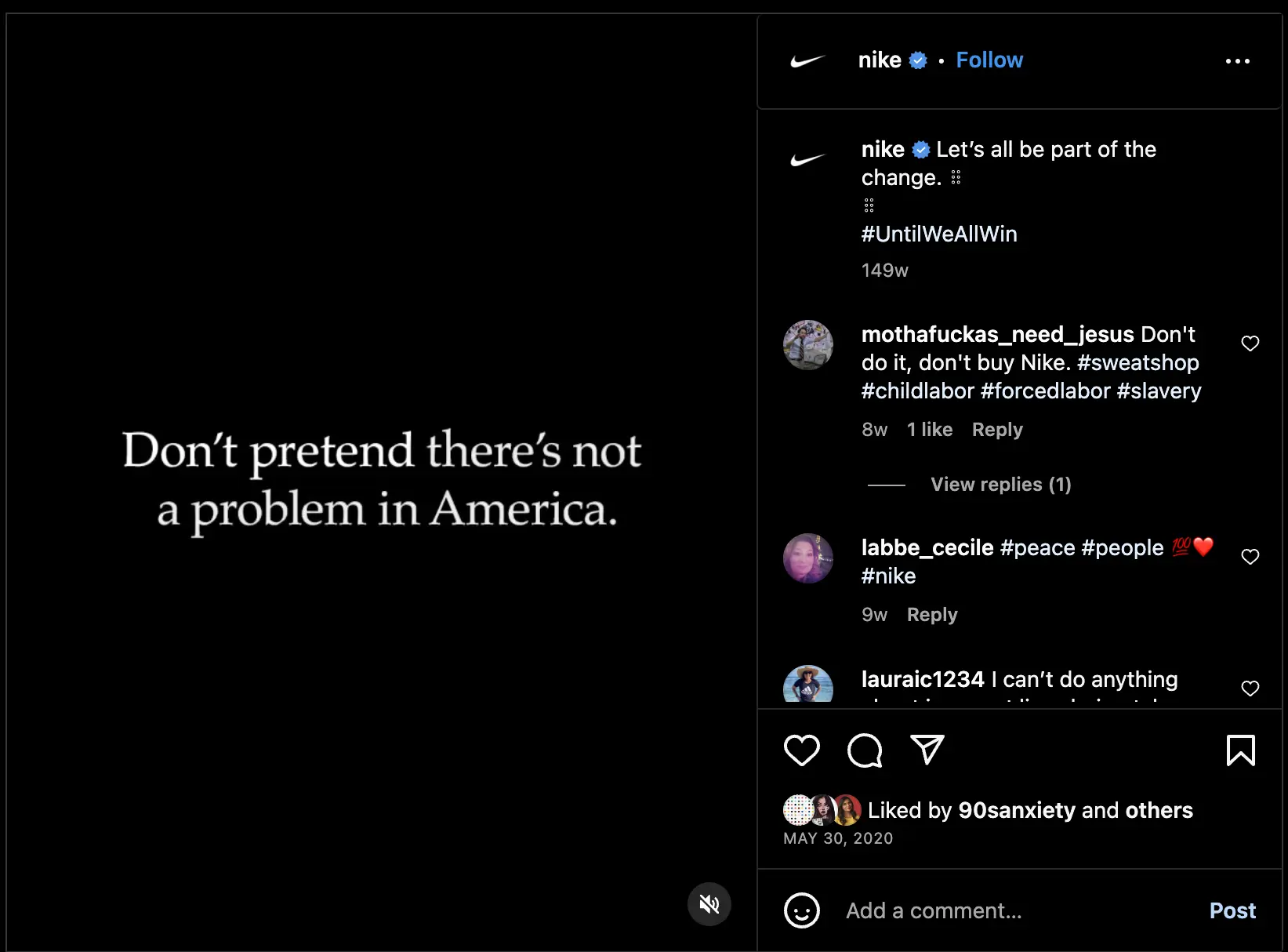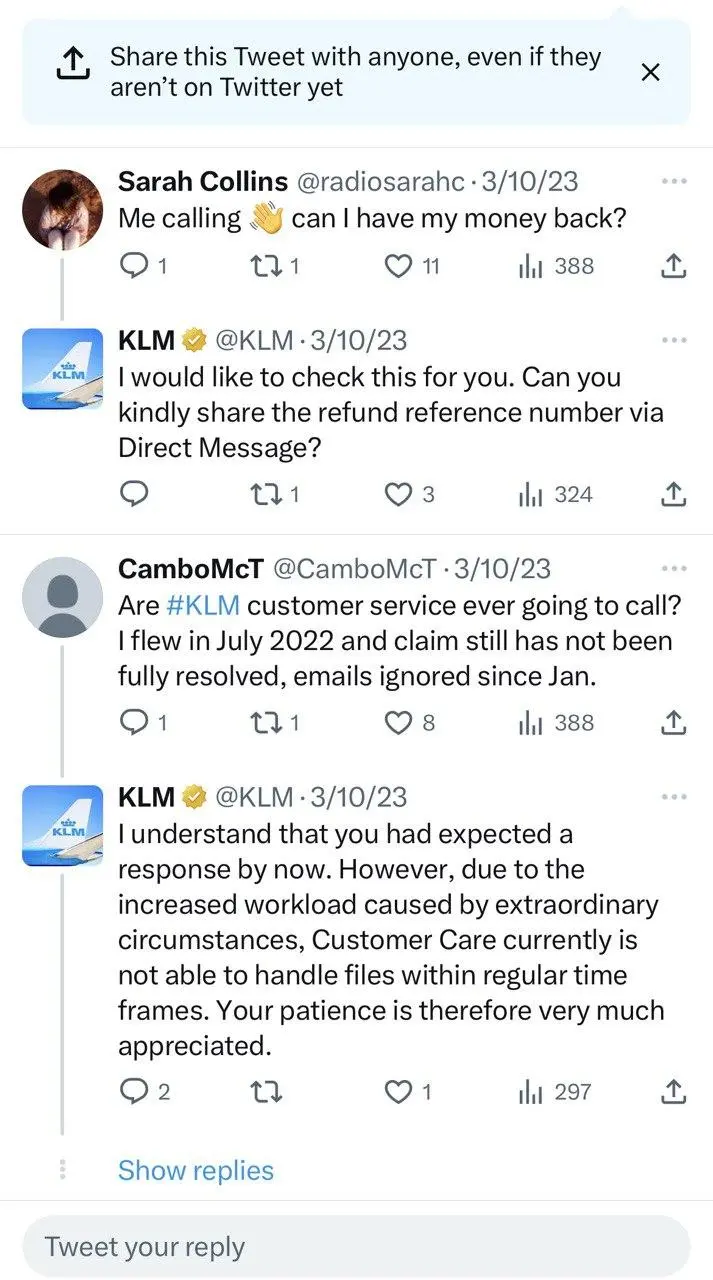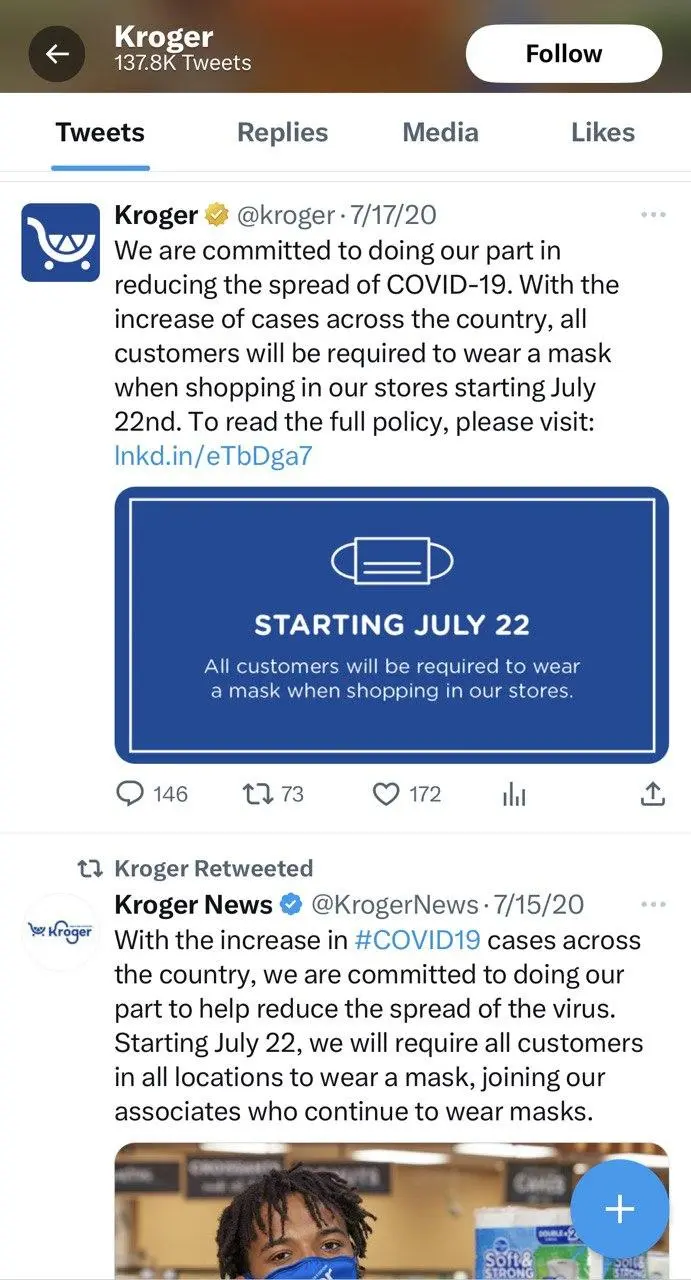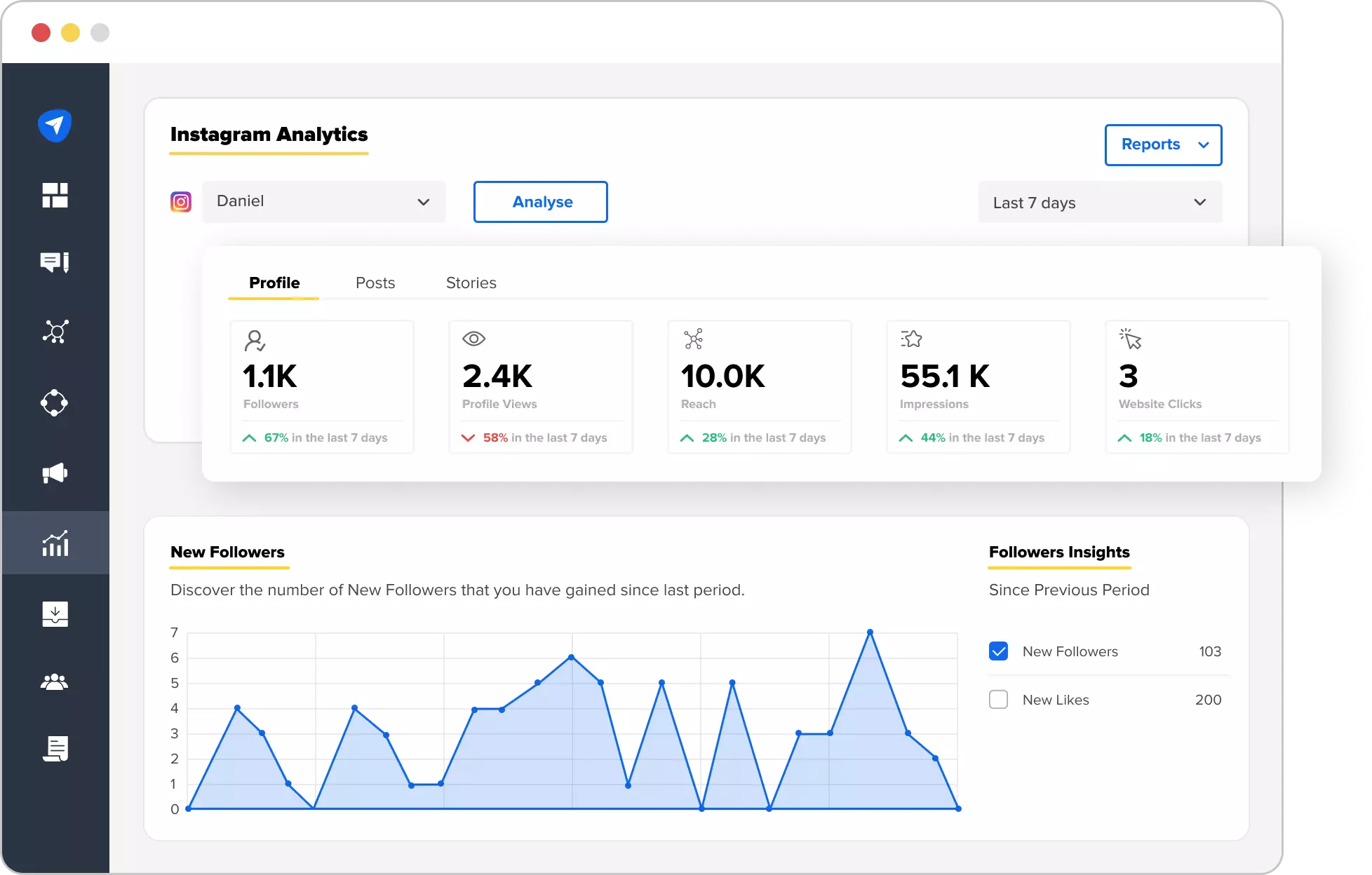Companies must stay adaptable and innovative to remain competitive in today’s constantly evolving business landscape. The volatile nature of the environment means that businesses must rely on tools and strategies that can help them weather any storm.
Social media has emerged as a critical tool for businesses of all sizes to survive and thrive in uncertain times.
In this post, we will examine eight ways businesses can showcase social media’s importance in a volatile environment. By leveraging the power of social media, businesses can stay connected with their audience, manage their reputation, and maintain a competitive edge even in the most challenging times.
8 Ways to Show Your Clients the Importance of Social Media
1. To Understand Your Audience
Understanding your audience is more important than ever, given the volatility of today’s business environment.
Social media platforms offer valuable insights into your target audience’s preferences, behaviors, and interests. Businesses can tailor their marketing strategies and communication efforts by analyzing social media data to better resonate with their audience.
Social media can give businesses important insights into how their target audience is affected during economic volatility. For example, businesses can use social media during a recession to understand the economic downturn’s impact on their audience’s current concerns and interests. This information can help them adapt their marketing strategies to resonate better with their audience’s needs and concerns.
A brilliant example of a company successfully using social media to understand its audience is Netflix. The streaming platform tracks what types of shows and movies its viewers watch and creates original content that appeals to those viewers, which has helped it become one of the most popular streaming services in the world.
By leveraging social media data to understand your audience, you can improve your marketing efforts and stay ahead of the competition in a rapidly changing business landscape.

2. Amplifying Your Brand’s Voice
In a world where news and opinions can be shared at a click of a button, businesses must ensure they have a strong voice on social media.
Social media provides an excellent platform to amplify your brand’s voice and message, share information, and connect with audiences. During times of volatility, such as crises, social media can serve as a vital tool for businesses to communicate with their customers and build trust.
For instance, during the COVID-19 pandemic, many businesses leveraged social platforms to communicate their safety measures and business operations to their customers. By doing so, they could stay connected with their customers and reassure them that they were taking appropriate measures to ensure their safety.
During the 2020 Black Lives Matter protests, many companies took to social media to express their support for the movement and promote racial equality. Nike, for example, posted a video on Instagram with the line “Don’t pretend there’s not a problem in America” and tweaked their signature slogan from “Just Do It.” to “Don’t Do It” The post received millions of views, with many praising the brand for taking a stance on the issue.

This example shows how a company can leverage social media to communicate its values and support important causes, strengthening its brand reputation and connection with its audience.
3. Keeping Customers Informed
During times of volatility, it’s crucial to keep your customers informed of any changes or updates that may impact them. Social media provides an effective way to communicate updates in real time, keeping customers engaged and informed. This helps establish trust and loyalty, as customers appreciate businesses that keep them informed.
For instance, in the event of a natural disaster or pandemic, businesses can use social media to update customers on safety measures, service changes, and product availability. This allows customers to stay informed and plan accordingly.
One example of a company using social media for customer support is KLM, the Dutch airline. The company has a dedicated team of social media agents who respond to customer inquiries and complaints on platforms like Twitter and Facebook. This approach has resulted in increased customer satisfaction and helped KLM build a reputation for excellent customer service.

By utilizing social media to keep customers informed and engaged, businesses can establish a strong reputation for customer service and build loyalty among their customer base.
4. Building Relationships
Along with providing a proper means of communication, social media also allows businesses to make personal connections with customers. Companies are in a position to create strong relationships and cultivate brand loyalty by engaging with their audience through social platforms.
Several companies take advantage of social media to connect with customers and foster brand loyalty by responding to customer comments or messages, sharing user-generated content, or hosting online events.
Take Nike, for example. The brand has built a strong community on various social platforms by engaging with its customers, sharing content related to its products, and hosting events. This approach has helped them build a loyal following and drive significant engagement on its social media channels.

Interesting read: 6 Ways to Engage Customers and Boost Conversions on Social Media
5. Leveraging Social Media Advertising
During times of volatility, businesses often face increased competition and decreased visibility in their market. To combat these challenges, it’s essential to have a strong social media advertising strategy in place. Social media advertising provides an effective way to target audiences, increase visibility, and remain competitive.
By leveraging social media advertising, businesses can promote their products and services to specific audiences, increasing brand awareness and maintaining their market position.
For example, during increased competition, a business can use social media advertising to target their competitors’ customers and promote their own products or services.
6. Proactive Reputation Management
Social media platforms offer exceptional opportunities for businesses to manage their reputation proactively.
By closely monitoring social channels and promptly addressing negative comments or reviews, businesses can effectively minimize the potential impact of unfavorable sentiments. This proactive strategy helps safeguard a business’s reputation, fosters trust with customers, and mitigates any potential harm to the brand.
For example, during situations such as product recalls or unfavorable customer experiences, a business can utilize social media to address concerns and reassure customers that they are taking the necessary steps to rectify the issue.
Consider the case of United Airlines in 2017 when it faced a crisis after a video of a passenger being forcibly removed from a plane went viral. The company astutely employed social media to manage the situation.United’s CEO, Oscar Munoz, publicly apologized on Twitter, and the company utilized its social channels to communicate with customers and responding to their concerns actively.
This well-executed strategy helped United Airlines mitigate the damage to its reputation and regain the trust of its customers, demonstrating the immense value of proactive reputation management through social media.

7. Leveraging Social Media for Crisis Communication
Social media has proven to be a powerful tool for crisis communication, enabling businesses to respond rapidly and transparently during unforeseen events. Companies can effectively utilize social platforms to inform customers and stakeholders about changes in operations, policies, or other important real-time updates.
For instance, the COVID-19 pandemic saw numerous businesses using social media to share crucial information with their customers. This helped maintain transparency and fostered trust and confidence during a period of global uncertainty.
A prime example of this approach is Kroger, a prominent supermarket chain.
Throughout the pandemic, Kroger utilized Twitter to share regular updates on its store hours, safety protocols, and product availability. The company also addressed customer concerns and questions, offering prompt responses and solutions.

By maintaining open lines of communication and prioritizing customer needs, Kroger demonstrated its commitment to customer satisfaction and safety.
8. Harnessing Social Media for Market Research
Social media offers a treasure trove of data and insights, enabling businesses to stay ahead of market trends and customer demands. By employing social listening tools, companies can monitor conversations about their brand, competitors, and industry, identifying emerging trends, consumer preferences, and potential growth areas.
A prime example is Wendy’s, the fast-food chain, which leveraged social media to collect customer feedback and successfully launched a new breakfast menu in 2020.

By engaging with customers and analyzing their preferences, Wendy’s managed to adapt and innovate, ensuring their offerings remained relevant and appealing.
Harnessing social media for market research empowers businesses to maintain a competitive edge in dynamic environments. Companies can adapt and thrive in a constantly evolving landscape by staying informed about consumer sentiments and market shifts.
Interesting read: 15 Social Media Tips to Elevate Your Marketing Strategy
SocialPilot’s analytics feature offers valuable insights into your social media performance, aiding in effective market research.
The tool helps businesses make informed decisions to maintain a competitive edge and meet customer demands in an ever-changing landscape by tracking engagement metrics, identifying trends, and monitoring audience sentiment.

Conclusion
Even in volatile environments, these eight essential ways demonstrate the importance of social media. As businesses face ever-changing landscapes, it is crucial to harness the power of social media for crisis communication, reputation management, market research, and more.
Businesses can foster trust and strong customer relationships by maintaining transparency, empathy, and responsiveness. Moreover, leveraging analytics and social listening tools allows for informed decision-making and adaptability. As we navigate uncertain times, embracing these strategies will empower businesses to thrive and ensure their social media presence remains impactful and relevant.



